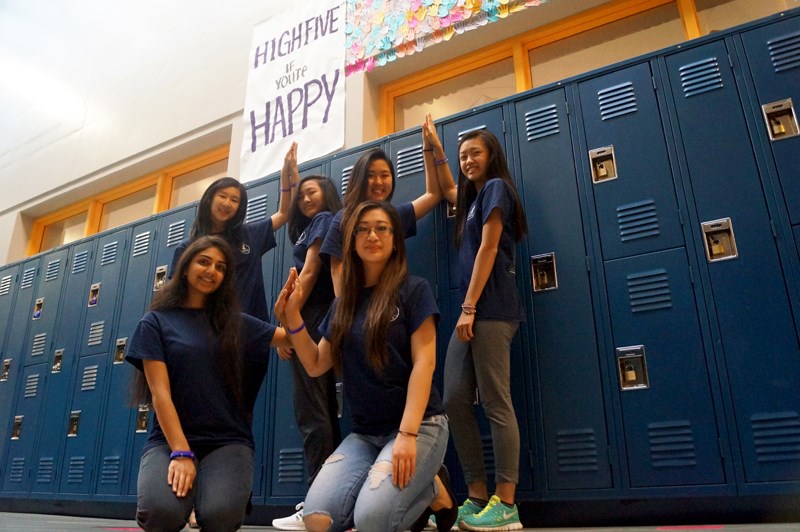Can you go an hour without complaining? How about a day? How about a month?
Students at Cambie secondary are challenging themselves to do just that as part of a senior leadership course.
“Often as humans our paradigm is negative rather than positive so we want to change what we verbalize. If we’re positive, that positivity comes back to (us),” said Cambie’s recreation leadership coordinator Ms. Paula Stone-Charlton.
The 60 or so students call the challenge the Complaint Free World Journey, inspired after a book that chronicles similar challenges around the world whereby people stopped complaining and started enjoying life through a more positive perspective.
Ms. Stone-Charlton said the idea initially came from a pastor in America who thought his congregation was being too negative. He challenged the congregation to be more positive and his story spread quickly online.
Part of the challenge includes doing random acts of kindness, as well.
Grade 12 student Rosalie Cheung said she recently bought a coffee for a familiar stranger whom she knew had a mental illness.
“What was amazing was the look on his face. It was the most appreciative moment I have seen,” said Rosalie.
”It has opened our eyes to see how much we complain about silly stuff,” she added.
The students have created “positive zones” in the school, including a high-five zone whereby everyone is asked to high-five one another within a 30-foot span of hallway. The zone has paper cutouts of hands with the names of every student in the school. Plastered on the floor are hand cutouts as well.
Students also went around the school placing post-it notes with positive messages on lockers.
The leadership students have also been wearing wristbands to remind themselves to be positive. Should they catch themselves in the midst of a complaint, they must place the band on the other hand.
“It’s difficult to go with it, because when you first start you start to get conscious of complaining and find yourself complaining all the time in the first few days. But after some time you get used to it and then you can go an hour without complaining and then a day and it goes on,” explained Grade 12 student Kavya Balajepalli.
Students partnered up in order to give one another support during the challenge, which started in mid-October and doesn’t appear to have an end date.
Grade 12 student Angelica Gatchalian said not all complaints should be kept to one’s self, however it’s the way in which the complaint is voiced that is important. Also, it’s best to keep small, personal complaints to oneself, she said.
“You can complain in your mind but if your actions or words display it then you’re spreading that negativity,” explained Angelica.
Ms. Stone-Charlton noted the leadership classes talk about how to speak directly to the source of the complaint.
“We talk about this process. It should teach us about better communication. When we aren’t happy about something we should be addressing that, but we should be going to the source and having a constructive conversation with them, to find a resolution and create a positive outcome,” said Ms. Stone-Charlton, adding that modifying a behavior such as chronic complaining can take four to eight months on average. This challenge is to go 21 consecutive days without a single complaint.
“Through the process you start to recognize that you’re complaining and hopefully change the way you think and then change your outcomes. In the end we get to a point where you’re thinking positively,” said Ms.Stone-Charlton.
At the end, she’s hoping the exercise provides her students with the necessary leadership qualities to continue into their post-secondary lives.
“Leadership is present in all of us and there’s an element that everyone can provide. But it’s about identifying your strengths and applying those in the community,” said Ms. Stone-Charlton.



